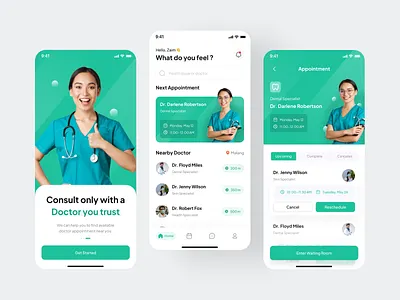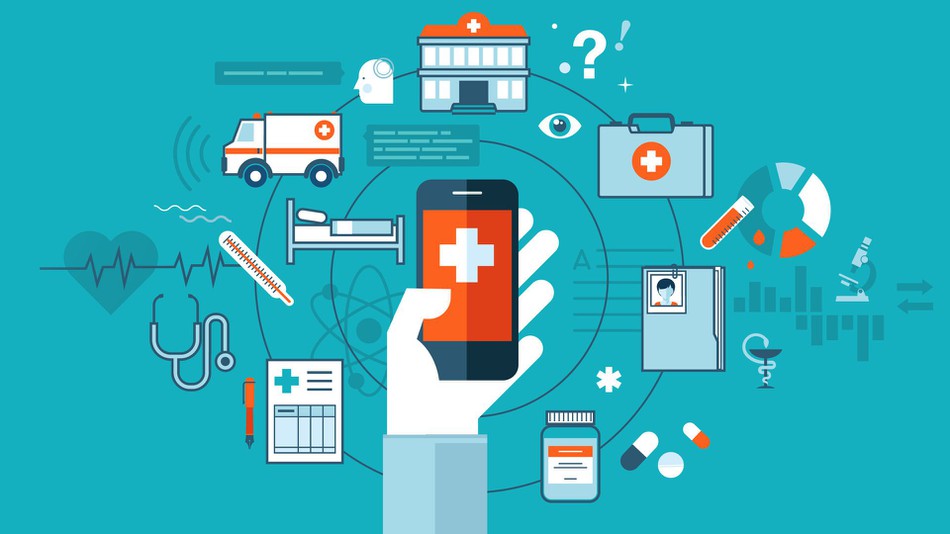How a Mobile App for Clinics Enhances Interaction Between Doctors and Patients
How a Mobile App for Clinics Enhances Interaction Between Doctors and Patients
Blog Article
The Future of Healthcare: Why Clinics Need a Mobile Application Today
As the healthcare landscape remains to progress, facilities face placing pressure to adapt to client assumptions for greater comfort and accessibility. The assimilation of mobile applications can function as a vital technique for improving client involvement and enhancing operations. By leveraging technology to improve interaction and supply necessary solutions, centers not only address existing demands but likewise position themselves for future success. The ramifications of this shift prolong beyond plain functional efficiency; they could redefine individual connections and care shipment in extensive methods. What might this change appear like for both individuals and facilities?
Transforming Client Assumptions
As the landscape of medical care develops, person expectations are undergoing a significant makeover. Today's people are significantly looking for convenience, accessibility, and personalized care.
Moreover, people are coming to be a lot more informed and empowered, usually investigating treatments and problems on the internet prior to appointments. This increased recognition is paired with a need for transparency in healthcare procedures, consisting of expense quotes and treatment choices. Consequently, service providers are obliged to adapt by taking on digital devices that improve the patient experience.
The assumption for timely and effective communication has never ever been higher, with several clients considering responsiveness an important component of high quality treatment. mobile app for clinics. In this developing landscape, healthcare companies should acknowledge these changing assumptions and leverage mobile applications to foster a more patient-centric strategy, ensuring that they not only satisfy yet go beyond the requirements set by today's educated customers
Enhancing Person Involvement
Mobile applications promote communication between individuals and doctor, making it possible for real-time visit scheduling, suggestions for medication adherence, and direct messaging functions. These performances not only boost convenience but also develop a sense of liability among patients. Furthermore, mobile apps can use educational web content customized to private needs, assisting individuals much better understand their problems and therapy choices.
The integration of gamification aspects within healthcare apps can additionally motivate people to engage in healthy and balanced habits, reinforcing positive way of life changes. By tracking progression and rewarding achievements, patients are much more likely to stay dedicated to their wellness objectives. Ultimately, enhancing client involvement with mobile applications causes enhanced health end results, greater individual complete satisfaction, and an extra collaborative healthcare experience. Facilities that prioritize this facet will likely see a substantial effect on the top quality of care supplied.
Streamlining Center Workflow
Simplifying facility procedures is important for enhancing workflow efficiency and enhancing client treatment. The execution of mobile applications can considerably minimize management concerns, allowing doctor to focus much more on person communications. By automating appointment scheduling, individual check-ins, and payment procedures, centers can lessen wait times and boost overall functional performance.
Mobile apps additionally promote real-time accessibility to individual records, allowing medical care professionals to make informed choices swiftly. This immediacy not just boosts the quality of treatment however additionally decreases the chance of errors connected with misplaced or dated info. Leveraging mobile innovation sustains an extra organized method to handling individual follow-ups and therapy plans, making sure that no essential actions are forgotten.
This enables for timely replenishment and assists prevent disturbances in individual care due to equip scarcities. By integrating these performances right into their daily operations, facilities can produce a more efficient and cohesive environment, ultimately leading to boosted patient results and contentment.
Improving Interaction Channels
Effective communication is regularly pointed out as a keystone of visit homepage quality health care delivery. In today's fast-paced clinical environment, mobile applications can substantially boost communication networks in between facilities, individuals, and doctor. By integrating mobile apps into their operations, facilities can help with real-time interactions, making certain that patients get prompt details regarding their consultations, examination outcomes, and therapy plans.
Mobile applications also encourage clients to connect directly with their medical care teams via safe and secure messaging attributes. This direct line of communication cultivates a sense of engagement and enables immediate information of worries, which can bring about much better adherence to therapy procedures. Furthermore, push notices can advise individuals of upcoming appointments or medication routines, decreasing no-show prices and enhancing total health outcomes.

Staying Affordable in Health Care
In a swiftly developing healthcare landscape, companies need to focus on technology and versatility to preserve an one-upmanship. The assimilation of mobile applications right into health care services is no more optional; it is crucial for clinics aiming to improve client interaction, simplify procedures, and boost overall solution shipment.
As clients increasingly count on electronic systems for health management, clinics that stop working to take on mobile modern technology danger dropping behind. A properly designed mobile application can offer functions such as visit organizing, telemedicine examinations, and access to clinical documents, giving clients with ease and fostering commitment.

Competitors are additionally investing in mobile options, so remaining ahead calls for constant enhancement and remaining educated about technological advancements. Facilities must not just apply mobile applications however additionally take part in routine updates and improvements. Inevitably, the effective assimilation of mobile modern technology will certainly differentiate forward-thinking healthcare companies and established the criteria for patient-centric treatment in a digital world.
Final Thought
In verdict, the assimilation of mobile applications in clinics explanation is necessary to resolve the evolving landscape of person assumptions. Eventually, the strategic implementation of mobile apps stands for a vital step towards supplying accessible and individualized health care, therefore satisfying the demands of today's encouraged clients.
Inevitably, improving person interaction through mobile applications leads to enhanced wellness outcomes, higher patient contentment, and a much more collaborative health care experience.Mobile apps also facilitate real-time access to patient records, enabling healthcare experts to make informed choices promptly. In today's hectic clinical setting, mobile applications can substantially boost interaction channels in between centers, people, and health care providers.Mobile applications additionally encourage people to connect directly with their health care teams through protected messaging features. Inevitably, the critical execution of mobile apps stands for web a critical action towards providing obtainable and individualized medical care, thus satisfying the requirements of today's empowered patients.
Report this page